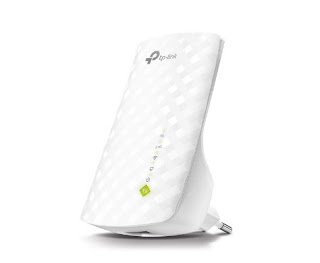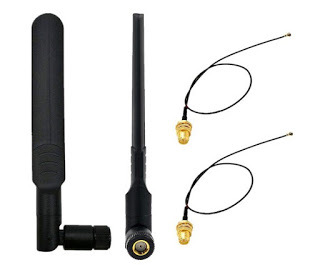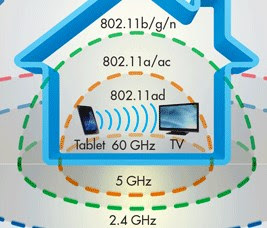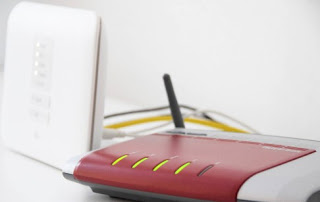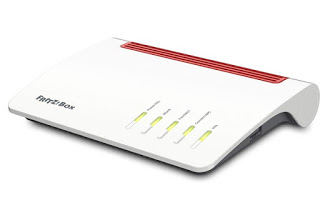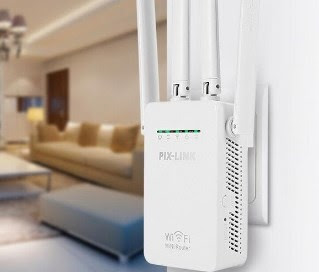 A normal WiFi router should be sufficient to cover a standard home up to 100 square meters or an equivalent office. Due to interference, distance, walls or other impediments, in some rooms or areas, the router signal is too weak and, therefore, not very stable. Fortunately, a few tricks and some additional devices are enough to get an optimal signal in every room and therefore have uniform coverage to connect any device (Smart TV, console, smartphone, PC, etc.).
A normal WiFi router should be sufficient to cover a standard home up to 100 square meters or an equivalent office. Due to interference, distance, walls or other impediments, in some rooms or areas, the router signal is too weak and, therefore, not very stable. Fortunately, a few tricks and some additional devices are enough to get an optimal signal in every room and therefore have uniform coverage to connect any device (Smart TV, console, smartphone, PC, etc.).In this article, we will show you all the best methods for extending the area covered by the WiFi signal at home or in an office, so as to be able to cover even the most remote or inaccessible corners with the standard signal of the modem/router in use.
READ ALSO: 10 ways to amplify home Wi-Fi and extend wireless reception
Have the best Wi-Fi router coverage at home or in the office
To get the signal to your home or office, we advise you to follow the advice we have collected below, so as to obtain immediate benefits (ie greater coverage for our Internet network).
Position the router correctly
The most important decision to have better Wi-Fi signal coverage is, of course, the router’s position: it might seem like a minor matter, but it is very important to be able to cover well every room in the room in which we place the device. Walls and furniture block the wireless signal and to reach all the rooms you need to find an equidistant point from which the router “sees” every room.
It must be considered that the Wi-Fi signal does not curve, but bounces off walls, mirrors, and furniture and loses strength every time it changes direction or passes through a wall. The router should not be on the floor but at least one meter tall and should not be placed inside a metal cabinet; in addition to mirrors, even water dampens 2.4GHz signals, the one used by wireless routers.
In our tests the best place to place the Wi-Fi router or modem turned out to be the wall near the ceiling: at this point it does not encounter many obstacles during the propagation, it spreads evenly and also allows to cover a house with two floors very well. Obviously we have to find the best point on a case by case basis, perhaps helping us with an app like WiFi Heatmap, available for free for Android.
Use Repeaters or Wi-Fi Extenders
In the event that we still cannot reach all the rooms in the house, we can focus on closed eyes Repeaters or Wi-Fi Extenders, able to amplify the starting Wi-Fi signal; the best repeater that we can buy at the moment (as value for money) is definitely the RE200 Wireless Repeater TP-Link (€ 22).
Be careful, however, not to make a mistake in positioning the repeater! They must be placed where the signal is still strong enough so that it can be extended to its full power. The ideal is to place it halfway between the “uncovered” area and the area where it takes the Wi-Fi signal to full so that it can be expanded properly. To learn more about how repeaters work and how to configure one, we refer you to our guide on How the wifi repeater or “Range Extender” works and which one to buy.
If instead, we look for a valid alternative to the Range Extenders, we advise you to focus on Powerline Wi-Fi, as described in our guide How the Powerline works, secrets and limits.
Use new Wi-Fi antennas on the router and on the PC
Many routers have at least two antennas so that the signal is fired in two different directions. Keep in mind, however, that if you have a large house, it is better to upgrade the antennas provided with the modem so that you can cover many more rooms. The best antennas to use on the routers are the WayinTop 2Set 8dBi 2.4GHz 5GHz Dual Band Wireless (10 €).
Obviously, in order to use these antennas, they must be removable on our router and must not be internal (like many models recently released or supplied by the operator).
Another good help can be placing good antennas inside a fixed PC (maybe in the room where Wi-Fi doesn’t get good): in this case we can take advantage of a good internal Wi-Fi network card like the Asus PCE-AC56 (€ 28) and use the Windows PC as a hotspot, as explained in our guide on how to Create a WiFi hotspot on a Windows PC.
Switch to 5 GHz for devices closer to the router
Many modern routers have dual transmission frequencies: 2.4 GHz and 5 GHz.
The 5GHz frequency does not suffer from interference but has several limitations, including that of having more limited coverage and being incompatible with some receivers. The advice is to connect as many devices as possible to the 5 GHz network (especially those close to the router), so as to leave more bandwidth (and better coverage) to distant devices, which will be reached by 2.4 GHz.
To better understand the difference between the two wireless frequencies, we can read our in-depth analysis Differences between 2.4 GHz and 5 GHz Wi-Fi networks; which is better?
Use two or more cascade routers
Another very effective way to get the best coverage of the Wi-Fi router at home or in the office is to cascade two or more routers, connected to the main modem by long Ethernet cables.
First of all let’s get the right Ethernet cables, such as the 10m Cat 7 Network Cable Gigabit Ethernet LAN cable 10,000 Mbit / s (12 €), and use them to connect one or more cascade routers to the main modem / router, so as to being able to create new separate Wi-Fi networks to connect the most distant devices (without losing transmission speed). In this regard, we invite you to learn more about our guide on how Connect two wireless routers to increase the WiFi range.
Change routers
If all the tips we’ve shown you are not enough to get better coverage, maybe it’s time to change our modem/router, focusing on a model with more coverage and support for new transmission technologies. One of the best routers for coverage is without a doubt the AVM FRITZ! Box 7590 International Modem Router, Wireless Fast AC + N, available for € 200.
If we are looking for other cheaper but equally effective models to replace the old modem, we advise you to read our guide to Best Modem to buy (fiber, dual-band, wireless AC).
Conclusions
Several methods are available to get the best coverage of the Wi-Fi router at home or in the office: in most cases, it is sufficient to better position the router, in other cases, we will have to resort to a range extender or new routers connected in cascade. The important thing is to achieve the goal, which is to connect optimally to Wi-Fi from any location in the home or office.
In two other guides, we showed you how How to add the wifi card to a fixed PC is Which wifi router to buy for the wireless home network?.
READ ALSO: How to avoid wifi interference from neighbors’ networks

